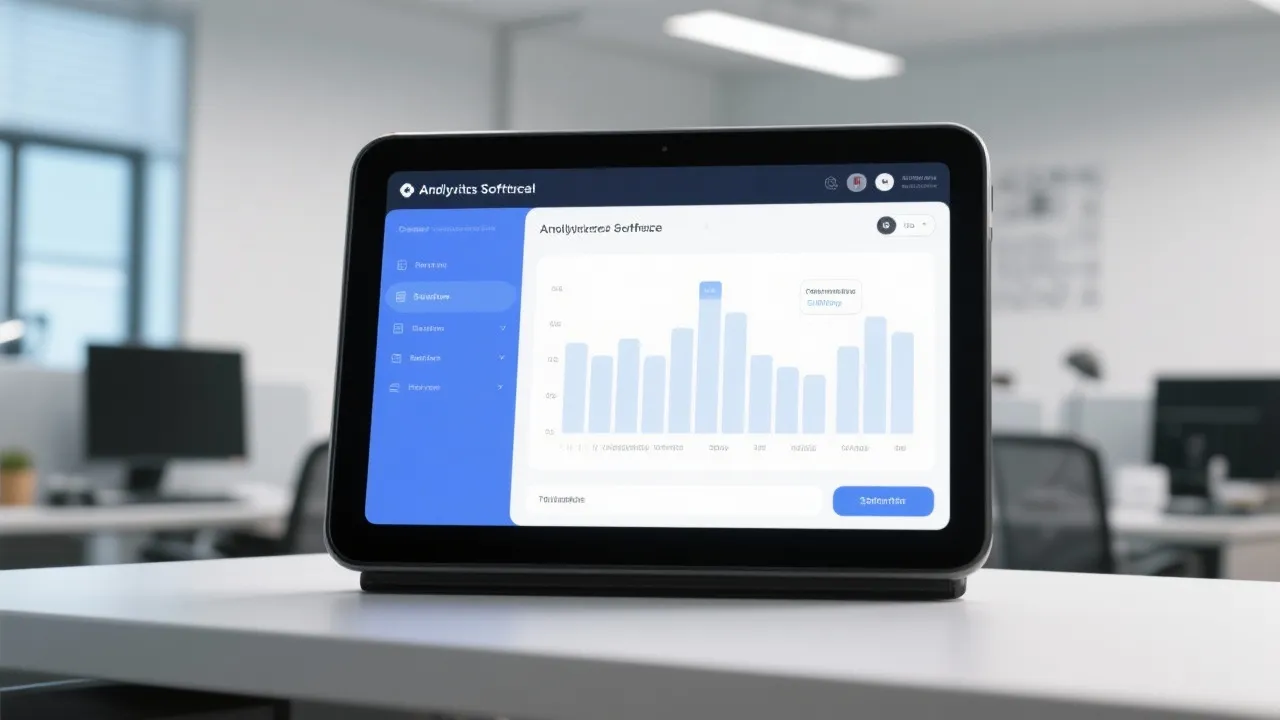Mobile Number's Impact in Analytics
The guide explores the role of mobile numbers in modern analytical frameworks. Mobile numbers, like 9617230082, are pivotal in data analytics, offering insights into marketing trends, user behavior, and customer segmentation. Leveraging such data can significantly enhance strategic decision-making processes, making them invaluable in today’s digital economy.

Introduction to Mobile Number Analytics
In the rapidly evolving digital economy, information gleaned from mobile numbers, such as 9617230082, serves as vital data points for businesses worldwide. As a unique identifier, they offer extensive insights into consumer demographics, behavioral patterns, and preferences. Understanding these dynamics empowers companies to craft targeted marketing strategies that resonate with specific audiences. Moreover, the increasing reliance on mobile communication provides a rich stream of data that can be analyzed to inform business decisions and practices.
Role of Mobile Numbers in Data Analytics
Mobile numbers, being pivotal in personal identification and communication, are increasingly being utilized in data analytics to track and predict consumer behavior. They serve as a bridge between digital actions and real-world identities, making them indispensable for creating robust consumer profiles. Data derived from mobile numbers encompass aspects such as call history, text messaging patterns, location data, and usage statistics that provide insight into consumer habits and preferences. This data can reveal purchasing trends, lifestyle choices, and even potential areas for product or service enhancement.
Key Benefits and Applications
- Targeted Marketing: By analyzing data linked to mobile numbers, businesses can tailor marketing campaigns to meet individual preferences, thereby maximizing engagement and conversion rates. For instance, if data indicates that a particular demographic frequently purchases eco-friendly products, companies can market those products more aggressively in that segment.
- Enhanced Customer Experience: Understanding user behavior through mobile analytics allows for the customization of services, enhancing the overall customer experience. Businesses can utilize data to provide personalized recommendations and timely offers, ensuring that customers receive the products and services that best match their needs.
- Fraud Detection: Mobile analytics helps in identifying unusual patterns or discrepancies, aiding in early detection of fraudulent activities. For example, if a customer's mobile number is linked to transactions in multiple locations in a short time span, it may trigger alerts for further investigation.
- Real-time Insights: The dynamic nature of mobile data allows companies to access real-time insights that can inform immediate business decisions. Businesses can instantly adjust their strategies based on the latest consumer behavior patterns, which is especially critical in fast-paced markets.
- Customer Segmentation: Mobile number analytics enables businesses to segment their customers more effectively. By analyzing behaviors tied to specific mobile number cohorts, companies can group customers by similar interests or buying habits, leading to focused marketing efforts.
Challenges and Considerations
However, leveraging mobile numbers requires navigating privacy concerns and ensuring robust data protection measures. Companies must adhere to standards and frameworks such as GDPR (General Data Protection Regulation) and CCPA (California Consumer Privacy Act) to maintain compliance and protect consumer data. Privacy regulations require that consumers have the right to know how their data is used, and to whom it is being shared. Additionally, organizations need to provide easy opt-in and opt-out options to their customers. Failure to do so can not only lead to legal repercussions but can also damage a company’s reputation and erode customer trust. Thus, companies must uphold transparency regarding data usage to foster a trustworthy relationship with their clients, actively demonstrating their commitment to data privacy.
Comparative Insight with Traditional Data Points
| Data Type | Advantages | Limitations |
|---|---|---|
| Email Address | Wide-reaching, Familiar Interface, Cost-effective for mass communication | Spam, Easier Change by Users, Lower response rates over时间 |
| Mobile Number | More Personal, Consistent Identity, Higher engagement and response rates | Privacy Concerns, Regulatory Constraints, Potential issues with number changes |
| IP Address | Geolocation Data, Ability to track user activity across different platforms | Dynamic Nature, Sometimes Shared Networks, Limited to digital interactions |
The table above delineates the advantages and limitations of different data types that businesses often utilize for analytics. While email addresses have been the traditional go-to data points for marketing, mobile numbers are proving to be more effective in certain situations thanks to their direct and personal nature. However, each type has its place in the analytical toolbox, and businesses must decide strategically which data type will serve their purposes best.
Case Study: Successful Applications of Mobile Number Data
Several companies have successfully implemented mobile number analytics to drive growth. For instance, a retail chain utilized mobile number tracking to analyze customer footfall patterns and purchasing habits. By segmenting customers based on their interactions linked to mobile numbers, firms have witnessed improved marketing ROI and customer retention rates. These numbers have become integral to business intelligence systems, offering real-time, actionable insights. One notable example is a leading airline that used mobile number analytics to enhance customer service; by sending personalized flight updates and ticket offers to customers based on their previous flight history, they achieved a significant increase in both engagement and sales.
Another example is a global fast-food chain that used mobile data to target customers during peak hours. By analyzing how often customers with certain mobile numbers visited locations, the chain was able to send promotional offers via SMS during times that typically saw lower foot traffic. This resulted in a measurable increase in sales during off-peak hours and demonstrates the power of mobile data analytics in prompting consumer action.
Future Trends in Mobile Analytics
As technology advances, the integration of mobile numbers in AI and machine learning applications is expected to deepen. Predictive analytics using these data points will allow businesses to forecast market trends, optimize supply chains, and enhance customer interactions even further. Machine learning algorithms can analyze vast datasets from mobile interactions to find patterns and trends that would be difficult for humans to identify alone. As tools become more sophisticated, businesses will have the ability to perform advanced analyses that uncover insights about customer preferences, emerging trends, and potential future behaviors.
Additionally, advancements in mobile technology itself, such as 5G, are anticipated to yield new opportunities for analytics. With increased data speeds and connectivity, businesses will be able to gather and analyze data in real-time with unprecedented accuracy. This will further strengthen the connection between businesses and their consumers, allowing for instantaneous response to customer needs and preferences. Furthermore, the integration of mobile payments will allow businesses to track not just consumer behavior via mobile numbers, but also purchasing behavior with a higher degree of accuracy.
FAQs
- What is the importance of a mobile number like 9617230082 in analytics?
It serves as a unique identifier allowing businesses to track and analyze consumer behavior, enhancing personalized marketing and customer service. The insights derived from mobile analytics help shape business strategies and ensure that services are tailored to meet the evolving needs of customers. - Are there privacy concerns using mobile data?
Yes, companies must ensure compliance with privacy laws and adopt transparent data usage policies to safeguard consumer trust. This includes providing clear information on how data is collected, used, and shared, as well as giving consumers control over their data. - How does mobile number analytics compare with traditional methods?
Mobile analytics offer more personal and constant data, tailored to relationships with individual consumers, though traditional methods still have their own advantages and challenges, as outlined in the table above. While traditional methods might offer broader outreach, mobile analytics can provide much deeper insights and faster response times, essential in today’s fast-paced market. - What industries benefit the most from mobile number analytics?
While many industries can benefit, sectors such as retail, finance, telecommunications, and hospitality have seen significant gains from leveraging mobile number analytics. These sectors rely heavily on consumer interaction data to drive sales and enhance their service delivery. - How will future regulations affect mobile number analytics?
Tighter regulations are expected as consumer privacy concerns continue to rise. Businesses will need to be proactive in adapting their practices to comply with new laws, which may involve changing data collection and processing methods to ensure that they remain in line with the evolving legal landscape.
Conclusion
In summary, mobile number analytics represents a powerful tool for businesses that are keen on understanding their consumers at a deeper level. By effectively harnessing the wealth of information tied to mobile numbers, organizations can derive actionable insights that can propel their marketing efforts, enhance customer services, and ultimately drive growth. However, the potential of this data comes with the responsibility of protecting consumer privacy and adhering to regulatory standards. Future trends suggest that as technological advancements continue, businesses will unlock even greater capabilities in mobile analytics, allowing for more precise targeting and improved customer interactions. The importance of mobile number analytics in the modern business landscape cannot be overstated, as it serves as both an integral aspect of strategic planning and a means to foster meaningful relationships with consumers.










